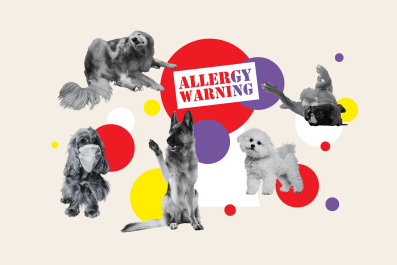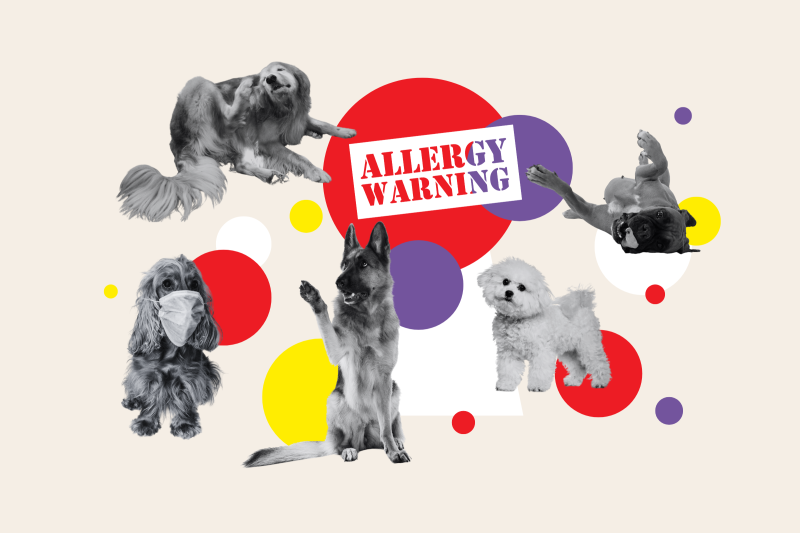
5 Dog Breeds Most Likely To Have Allergies, According to a Vet
Ever caught your canine friend scratching and sneezing? Allergies can be a significant issue for dog health, and Sean McCormack, head vet at Tails.com, has revealed which breeds are more likely to develop allergies.
"Before getting a dog, potential owners should look at different factors surrounding certain breeds and consider whether it is right for their lifestyle," McCormack told Newsweek. "Dog breeds that are prone to more allergies will require more attentive care from their owners to ensure they are happy and healthy."
Dog Breeds Most Prone to Allergies
While any dog could develop an allergy, McCormack explained that some breeds are more prone to allergies than others.
More From Newsweek Vault: The Top Rewards Credit Cards for Pet Owners

1. Bichon frise
Despite being a hypoallergenic pet for humans, bichon frises are highly sensitive to skin and food allergies and should always be monitored for severe itching or respiratory symptoms.
2. Golden retriever
The most popular dog breed in the U.S., the golden retriever is also susceptible to allergies to food and environmental issues. Their long coats mean it isn't always easy to detect symptoms, so owners should be extra vigilant.
More From Newsweek Vault: Compare Top Pet Insurance Plans For Dogs
3. German shepherd
Loyal and intelligent, McCormack said that German shepherds are particularly prone to food allergies. "German shepherds may consume certain foods for years without issues, only to suddenly develop a reaction," he added.
4. Cocker spaniel
Cocker spaniels are particularly prone to inhalant allergies, similar to hay fever in humans. Irritation from pollen or dust can cause itching, ear infections and even hair loss.
More From Newsweek Vault: Lemonade Pet Insurance Review
5. Boxer
Boxers are most sensitive to food allergies, especially those involving grain-based products like corn or wheat. "Symptoms in boxers can include gastrointestinal upset and, in severe cases, weight loss or dehydration," McCormack said.
Signs Your Dog May Have Allergies
"Chronic allergies can impact a dog's overall quality of life, and prospective owners need to be prepared to manage these conditions," McCormack said.
Signs of allergies in dogs include:
- Scratching and itching
- Excessive licking
- Red, irritated skin
- Vomiting and diarrhea
- Sneezing and watery eyes
"If you think your dog may have allergies, start by observing and documenting the symptoms," McCormack said. "Once you notice these signs, consult with a vet to arrange tests and determine the best course of action."
Owners considering taking on a breed more prone to allergies should be aware of signs, and prepared to provide special care where needed. "If you are considering welcoming an allergy-prone breed, you should be prepared for these potential expenses and the time required to care for a dog with such needs," McCormack said.
